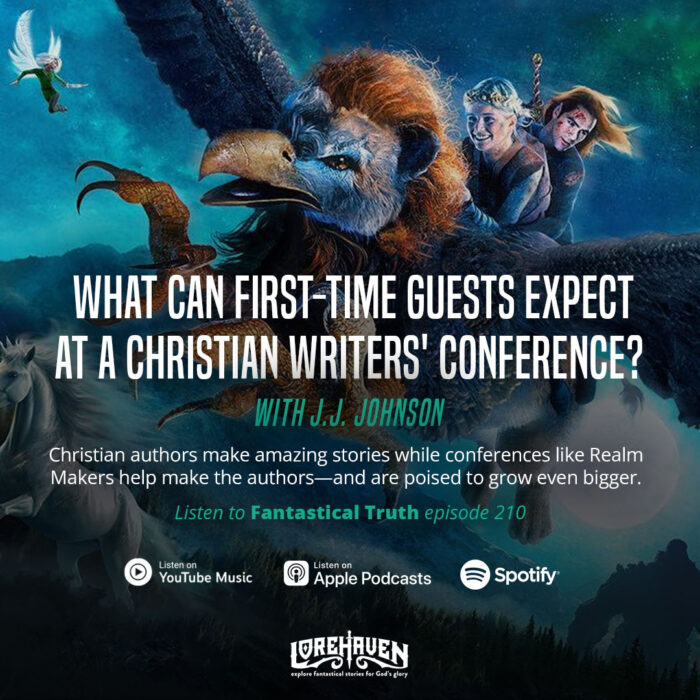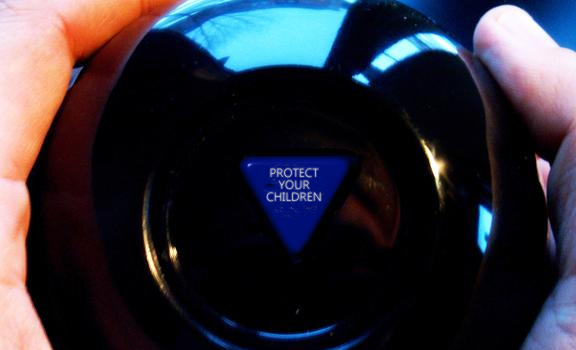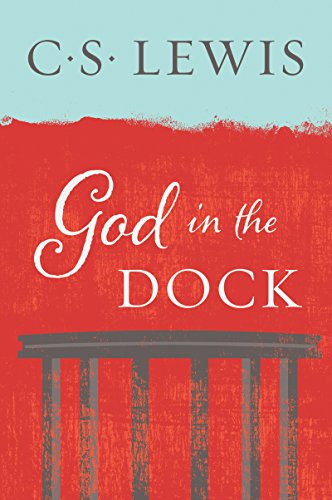This post returns to the What’s the Deal with the Devil series. I’m focusing on the idea that a clash of culture can be a reflection of a spiritual war, at least in part, and an excellent extended example that illustrates this point is in the pages of the Bible.
The first definition of culture offered by Webster’s dictionary is: the customary beliefs, social forms, and material traits of a racial, religious, or social group, also: the characteristic features of everyday existence (such as diversions or a way of life) shared by people in a place or time.
Some aspects of culture as mentioned in the definition above have little to no relationship with spiritual warfare, but some aspects do. In particular, while modern academia tends to support the idea that no one culture is ever better than another–with the idea that all should be seen from within the context of their own perspective–the idea that all cultures are equal in terms of moral beliefs and teachings isn’t Biblical. Some beliefs are better, more moral, than others–so the cultural beliefs of some groups have been better than others.
Note in practice, few people, even few academics who might defend multiculturalism, really believe that “all cultures are equally good.” Though their favorite cultures may be quite different from ones that reflect beliefs that at least in part match what’s true according to the Bible. So a matrilineal society might win the praise of some people, because it’s less patriarchal, and a society like the Sarmatians of ancient times might be considered better than our own because it had both male and female warriors in abundance and thus was more egalitarian. And on the flip side, few people defend cultural beliefs that supported offering a daily human sacrifice to the sun god as the Aztecs did or which sent millions to their deaths in labor or concentration camps as did the Nazis or Soviets.
Does the distinctly different culture of ancient Israel imply separation from the world?
A quick overview of the law and other writings of ancient Israel might lead a person to focus on how starkly different the Israelites were from their neighbors. Most of the surrounding peoples, while they tracked the movements of the moon, based their major holidays on a solar calendar. The Hebrews used a lunar calendar. While the surrounding peoples had a set of annual rituals that tended to look forward at the agricultural cycle to ensure, say, a good planting season and abundant fertility in celebrations at the Spring Equinox and a good harvest in the Fall (among many other forward-looking rituals), Ancient Israel had rituals that looked back to the past, some of which were in striking opposition to what their neighbors were doing.
So in the Spring, when the Pagans all around Israel were celebrating rituals to ensure fertility, Israelites were talking about slaying the Passover lamb, the Angel of Death, and deliverance from Egypt. At the harvest time in the Fall, in which Pagan people in some places were thinking about dead crops and therefore death in general, the Hebrews were thinking about atonement with God.
The Pagan peoples produced abundant images of the gods and many other things–whereas archaeological digs show ancient Israelite pottery was often unadorned. It seems the commandment of “making no image” (Exodus 20:4) was taken so seriously by the Hebrews that they made their entire culture different from every other nation.
Perhaps more basically, we can say that Ancient Israel represented people who reverenced written documents, the Law of Moses, wise sayings, and eventually the writings of the prophets and others. They also reverenced keeping the commandments and following laws handed down by God, as opposed to often arbitrary means of making decisions favored by Pagan peoples, such as divination.
So, it would seem, God’s plan for the ancient version of the nation of Israel was to make it as different as possible from every other nation. Which perhaps I or others could use as a launching point for the argument that Christian culture ought to be a different as possible from the “lost” culture surrounding us.
But hold on a minute:
Was Israelite culture actually that different? (Was Israelite “exceptionalism” really a thing? Or only in part?)
The overview I just gave is actually unfair. Other ancient peoples had written law codes, often with a great deal of similarity to the law of Moses (such as Hittite law and Babylonian law). Other peoples also had written wise sayings, collections of which are in fact very popular worldwide, from the ancient Egyptians to the Chinese. Other nations had prophets of various kinds, though Israelite prophets left a written legacy unlike any other nation. Though like other nations, ancient Hebrew people used the casting of lots at times to make decisions, which could be considered a form of divination–though they were supposed to go Jehovah to get the answers they sought, instead of other gods or spirits.

Worshiping the Golden Calf: A negative example of cultural influence on Ancient Israel. Source: Wikipedia Commons
Music was part of the worship of ancient Israel and was part of the worship of other nations, too. The few historic descriptions of ancient Israelite music imply it was different from other nations (for example, an ancient Assyrian king demanded tribute of musicians from Judah, presumably because they were distinct, as mentioned in the linked paper). But the instruments used in ancient Israel were similar to those of Egypt and Babylon and in fact the first reference to music in worship in the Bible is linked to the golden calf and the Pagan-influenced worship described in Exodus 32.
While we can say Israelite was past-focused in terms of rituals, the Israelite ceremonial calendar certainly did look forward to future blessings from God, even though it looked backward to past events. And the forward-looking Pagans did in fact remember legends of their gods and demi-gods during their annual rituals. And while the Egyptians were using a “lunisolar calendar” well before the time of the founding of the Israelite kingdom (the Egyptians may have switched to it as early as 2500 B.C.) they used a lunar calendar for religious celebrations.
While archaeological digs show the Ancient Israel using less imagery than surrounding nations, some images, that is, visual artwork, are found at Israelite archaeological sites, such as the winged sun seal of King Hezekiah, (which included two Egyptian ankhs as well!). Lest Hezekiah be accused of using artwork in a way not authorized by the Bible, the Bible itself records God commanding that images of angels would adorn the top of the Ark of the Covenant (Exodus 25:18-20), making it clear that the portrayal of anything at all was not forbidden by the Bible so much as the portrayal of anything intended to represent God.
Craftsmen from Tyre helped build the Jewish temple at the time of Solomon (of a culture today we’d call “Phoenician”), as recorded in I Kings 5. The temples of the Phoenicians as found in archaeological sites were laid out much like the Israelite temple–except for the Phoenicians, the inner “holy of holies” was occupied mainly by a statue of the god to be worshiped at any given temple. The Hebrews were distinct in having only one official temple for one official God (of course many other gods were worshiped in Israel in a way not authorized by the Bible). And in that temple, in the space where a statue would be, angels to the side of the space without outstretched wings surrounded–nothing. Emptiness. Showing the resounding power of the idea that God cannot be portrayed visually. Yet that space was outlined and highlighted by images of angels. Skillfully crafted images.
So the imagery we get of Elijah facing off with the prophets of Ba’al (I Kings 18), that zeal-inspiring historical reality, or the historical reality of King Josiah finally putting aside the nonsense of Israelite people worshiping other gods by physically destroying their altars (II Kings 23), that zeal is a reaction to a corruption of morals that had gone too far–but that zeal was not how the religion of ancient Israel always worked. Israel did in fact maintain separate traditions from the nations around them–but the things they did were not totally separate; they were not completely different.
What does this have to do with spiritual warfare?
My presumption not fully explained so far in this post is that Satan influences cultures to steer them away from believing there is just one good and holy God whenever possible. That the belief in human sacrifice and other culturally-accepted horrors like genocide isn’t a product of human imagination alone, that demonic powers are involved as well in influencing entire cultures to do evil, just as earlier posts in this series (parts 2 and 3) make it plain the Bible teaches tempting people to sin and getting them to believe false ideas are the primary objectives for Satan in the spiritual war (also, in a post from 2018 I made the case that the Pagan deities of the Old Testament and demons mentioned in the New represent the same sinister spiritual power). Though of course there are many ways to get people to stray from doing right and Satan isn’t locked into just one method (Matthew 7:13).
So we can say to a degree that the culture of Ancient Israel represented what God wanted to see a culture believe and the methods of self-expression he believed were acceptable. We can only say it to a degree because in one specific case, the issue of divorce, Jesus stated that the Law did not represent God’s original intent (Matthew 19:8) and certainly there are reasons to believe that in other areas the Law requires an understanding of its context and how it was actually applied. But still, generally speaking, the Scripture shows ancient Israel represented what God wanted to see in a nation and surrounding nations had practices the prophets of God justly condemned.
And notice how much the Israelites were influenced by surrounding cultures in a way that reflects spiritual war. Most especially in that they wanted to worship the same gods as everyone else, but also they adopted other practices of evil common in other nations that God prohibited, things the prophets railed against, including the oppression of widows, orphans, and other poor and disadvantaged people (see Zechariah 7:10 and many other places). This clash of cultures was not just a clash of differing groups of humans–invisible to the human eye, spiritual forces were prodding people in addition to the actions human beings took.
The bottom-line lesson from Ancient Israel:
The culture of ancient Israel in the Bible, while it had difficulty not giving in to the pressures of nations around it (pressures egged on by the Devil, according reasonable interpretations of what the Bible teaches about Satan), represented a culture God generally approved of. While that culture was distinct from the nations around it, it wasn’t totally different. In fact, all the forms of popular expression, whether laws or wise sayings, or stories, or music, or artwork, that existed in other nations, also existed in Ancient Israel. It’s just the laws and sayings came from a different authority, the stories we know about were about heroes of the past rather than gods and demi-gods, the music praised Jehovah, and the artwork left an empty space in the temple for the presence of the invisible God. The forms of popular expression, of popular culture, were either the same or very similar. But the subjects were at least a little different–and at times, very much different.
Did the New Testament change the nature of the spiritual war reflected in the clash of cultures?
The Old Testament already showed an example of doing the same sort of thing as surrounding cultures but in a different way. The New Testament is only a little different.
Idolatry is still forbidden in the NT (I Corinthians 10:14, I John 5:21, Revelation 9:20), though the emphasis is changed perhaps, because eating meat sacrificed to idols is allowed for those who could do so without violating their conscience (Romans 14:14).
Under the new covenant, it’s permissible for some of the outward symbols of having a different culture from the surrounding world that the Jewish people embraced to be abandoned, like circumcision (Acts 15:24-29). Or keeping festival days, which became optional (Romans 14:5-6).
Though presumably, these outward signs of being different from the world could be abandoned because the fruit of the Spirit as mentioned in Galatians 5 would make a Christian’s inner self already distinctly different from the world around him or her to such a degree that outward symbols were superfluous.
As far as popular culture is concerned, some references to the sports of racing (including I Corinthians 9:24) and a possible reference to boxing (I Corinthians 9:26) and a quotation of a Greek poet (Acts 17:28) indicate that Christians certainly knew about some forms of entertainment of their day and most likely attended at times. Note though that not one clear reference to attending gladiatorial games exists in the New Testament and the temple prostitution involved in sexual worship was clearly forbidden by prohibitions against fornication and adultery (not to mention idolatry). So sorting out the best from the worst of popular culture seemed to exist in the New Testament examples we have, limited though they are.
But that distinction in effect already existed in Hebrew culture, in Ancient Israel. The Israelites took the best features of the surrounding cultures and rejected the worst (when doing right). Again, Phoenician craftsmen helped build a temple very similar to a design they would have used–but where they would have put a statue of a god, empty space outlined by images of angels pointed to the Creator beyond the ability of human beings to capture in any kind of media.
So what does that this look at “cultural war” in the Bible mean to you? Is it helpful to realize “popular culture” of Bible times was influenced by the world around it, yet remained distinct in some ways? What are your thoughts on this topic?









































 7.
7.  5.
5.  3.
3.  2.
2.  1.
1. 








 Tomorrow—New Year’s Eve—is as much a holiday as New Year’s Day. Maybe more so. Today is just the day before the day before the new year. And when New Year’s Day falls in the middle of the week, as it does this year, no one really knows what to do with the day before the day before. Do we go back to work? Try to return to our normal routine? Extend the usual day off for New Year’s?
Tomorrow—New Year’s Eve—is as much a holiday as New Year’s Day. Maybe more so. Today is just the day before the day before the new year. And when New Year’s Day falls in the middle of the week, as it does this year, no one really knows what to do with the day before the day before. Do we go back to work? Try to return to our normal routine? Extend the usual day off for New Year’s? The point is, in remembering we can more clearly move forward, embracing the good gifts God has give us, whether salvation through Jesus or the everyday gifts we share with the common sparrows and the unremarkable flowers which God feeds and clothes.
The point is, in remembering we can more clearly move forward, embracing the good gifts God has give us, whether salvation through Jesus or the everyday gifts we share with the common sparrows and the unremarkable flowers which God feeds and clothes.


 Lewis describes a strange land oh-so-cleverly called Niatirb, whose residents “use the following customs”:
Lewis describes a strange land oh-so-cleverly called Niatirb, whose residents “use the following customs”:

